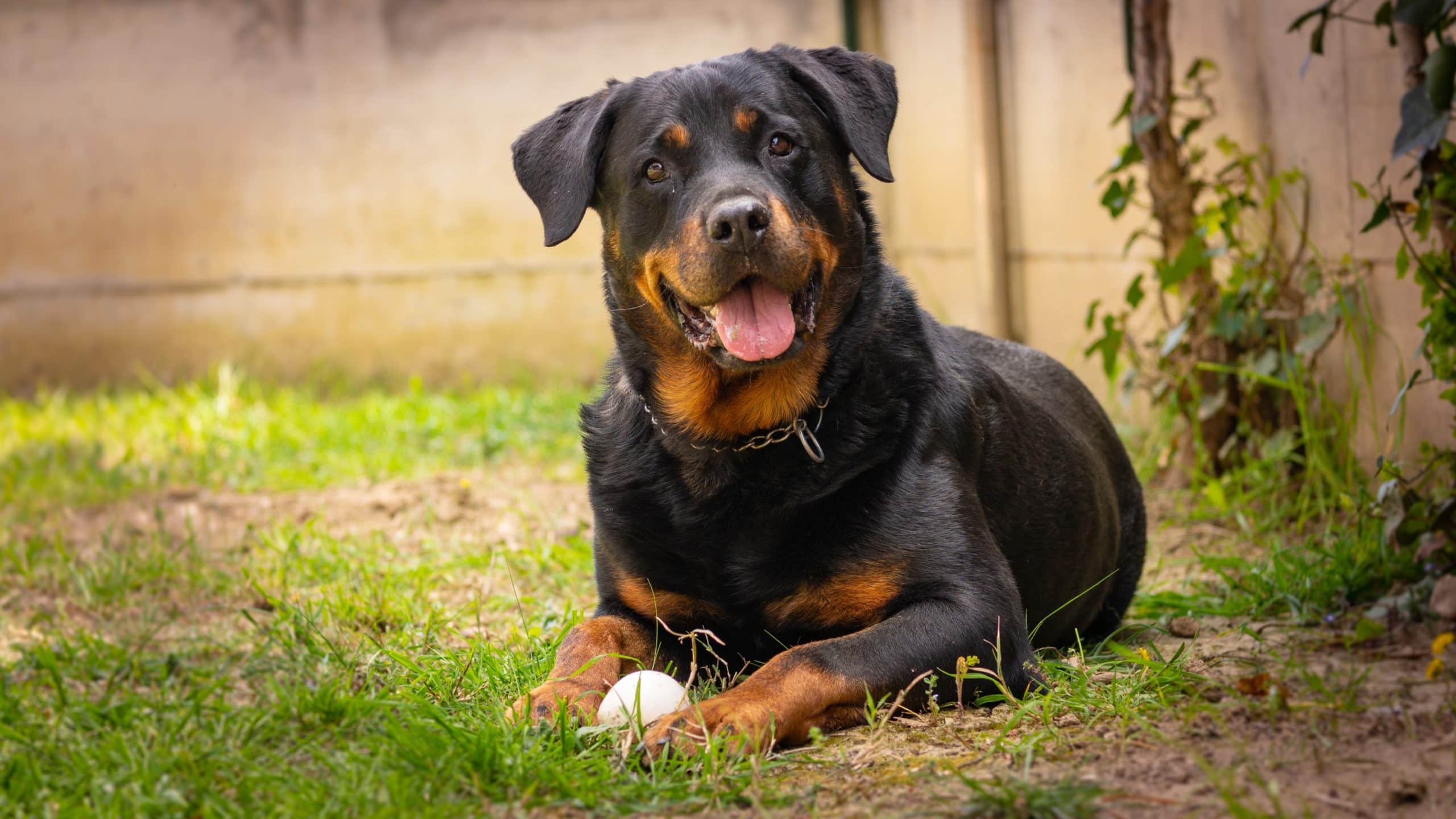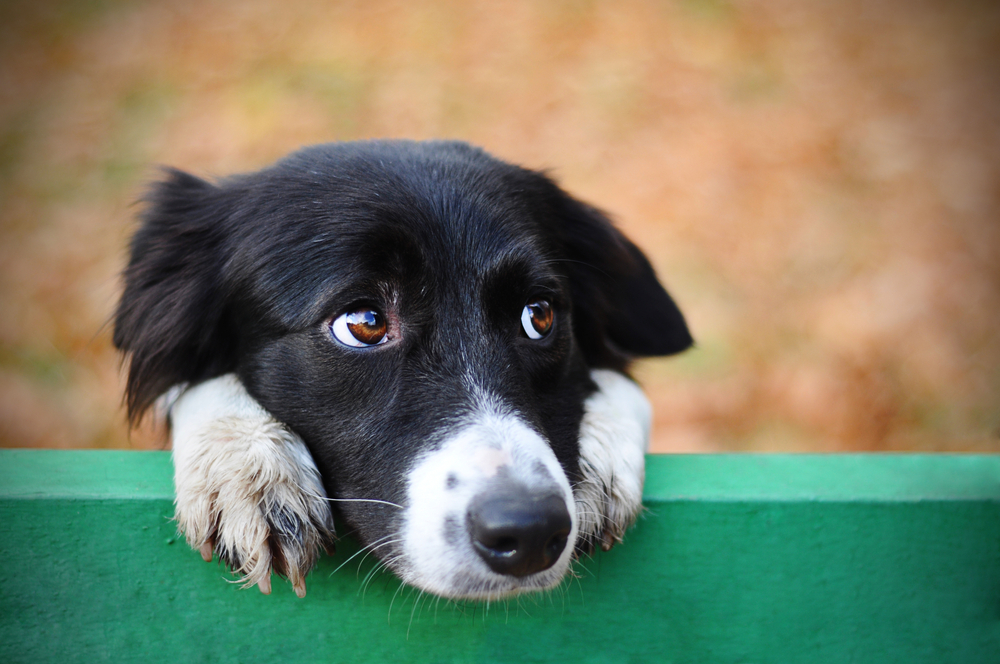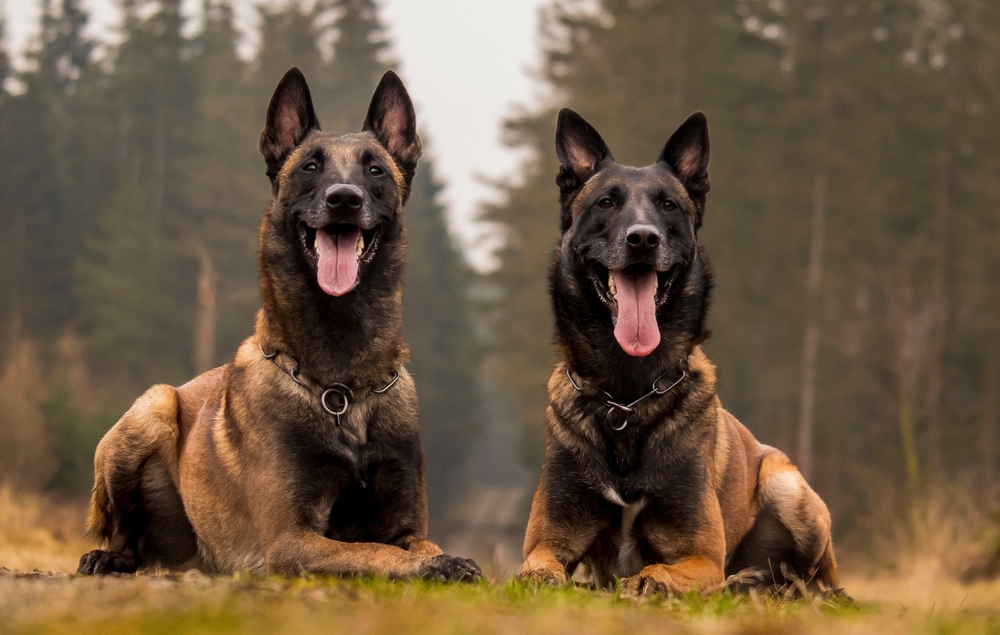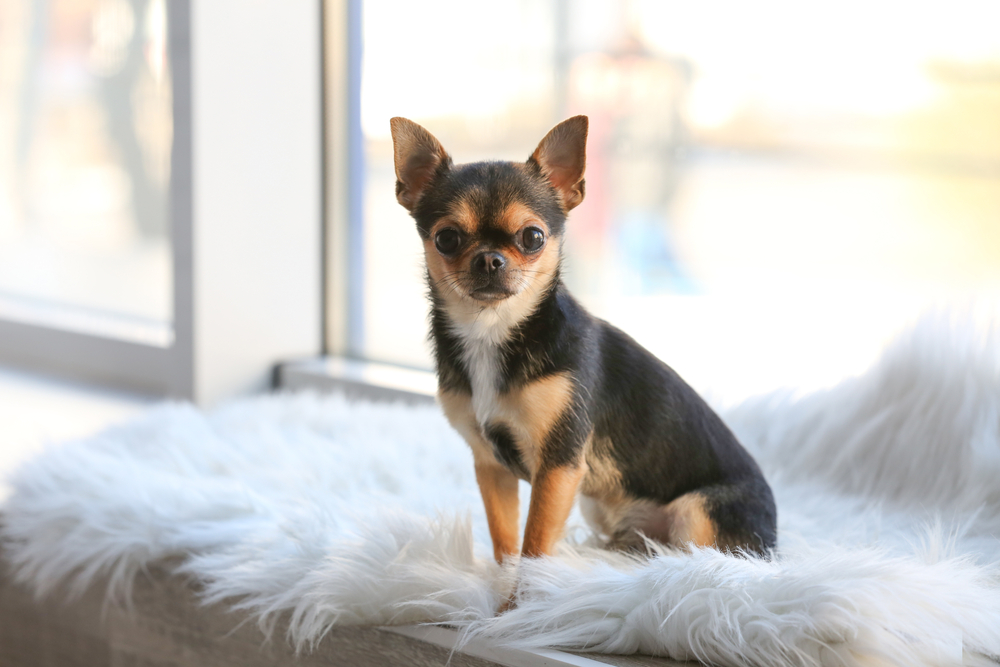As concerned pet parents, we always worry about our dogs’ safety and comfort, whether they’re playing, eating, or simply sleeping in their beds. Dreams affect our dogs just as they do us, with outward expressions like twitching, snorting, and barking giving us a glimpse into their mental state.
If you’ve ever wondered what goes on behind the scenes, we’ll explore why dogs bark in their sleep and how dreaming can influence it.
Why Does My Dog Bark in His Sleep?
Dogs usually bark in their sleep because they are dreaming. You may also see dogs twitching, growling, whining, or “running” in place, as they react to vivid stimuli in their dreams in a similar way to how they would in real life. As with humans, dogs go through rapid eye movement (REM) and non-REM phases of sleep but experience them in shorter lengths than we do because of their differing sleep patterns.
REM phases of deeper sleep are when a dog dreams, and we are most likely to see manifestations like barking. For a medium-sized dog, the first REM dream phase starts roughly 20 minutes after they fall asleep.
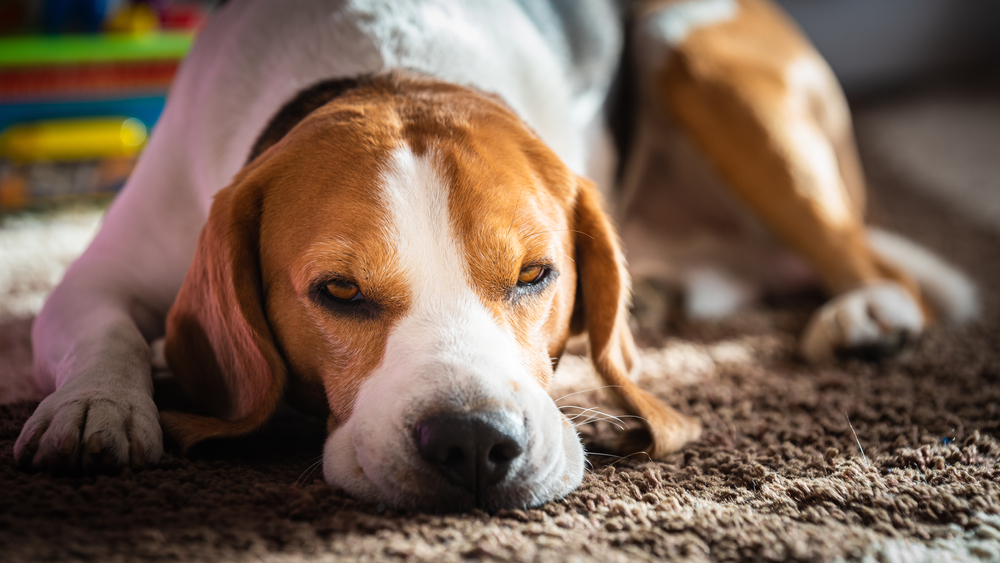
A Dog’s Sleeping Pattern
Although dogs sleep around 11–12 hours per day, with REM sleep accounting for nearly 3 hours, they do so polyphasically in multiple blocks throughout the day. A typical sleeping period only lasts for about 45 minutes. Cycles of non-REM and REM sleep are around 20 minutes.
Non-REM periods last roughly 12 minutes, and each REM period only lasts approximately six. As a result, dogs will often only bark in brief spurts. The length of each cycle can vary by breed, with some larger dogs having wider gaps between REM periods (60–90 minutes) and longer dreams. By contrast, smaller dogs may enter REM states as quickly as once every 10 minutes.
REM Sleep Behavior Disorder
Sleep disorders are uncommon in dogs but a condition called REM sleep behavior disorder (RBD) has been described which can cause a dog to bark in their sleep. Usually, muscles don’t activate during dream states as they enter a temporary paralysis called muscle atonia. With RBD, motor neurons don’t stop generating action potential, allowing a dog’s movements to manifest in real life.
Dogs with this disorder exhibit abnormal, complex, and sometimes violent motor behavior during REM sleep. They may have violent limb movements, howl, bite, bark, growl, or chew, showing these habits during daytime naps and nighttime sleeping periods.
Dogs suffering from REM sleep behavior disorder may suffer from underlying conditions, such as tetanus or other neurological diseases. Some may also have a genetic susceptibility. Unlike humans, who typically develop the disorder as they age, dogs usually exhibit RBD signs before their first birthday. Treating the issue with antidepressants or anti-seizure medications is often effective in reducing the signs.
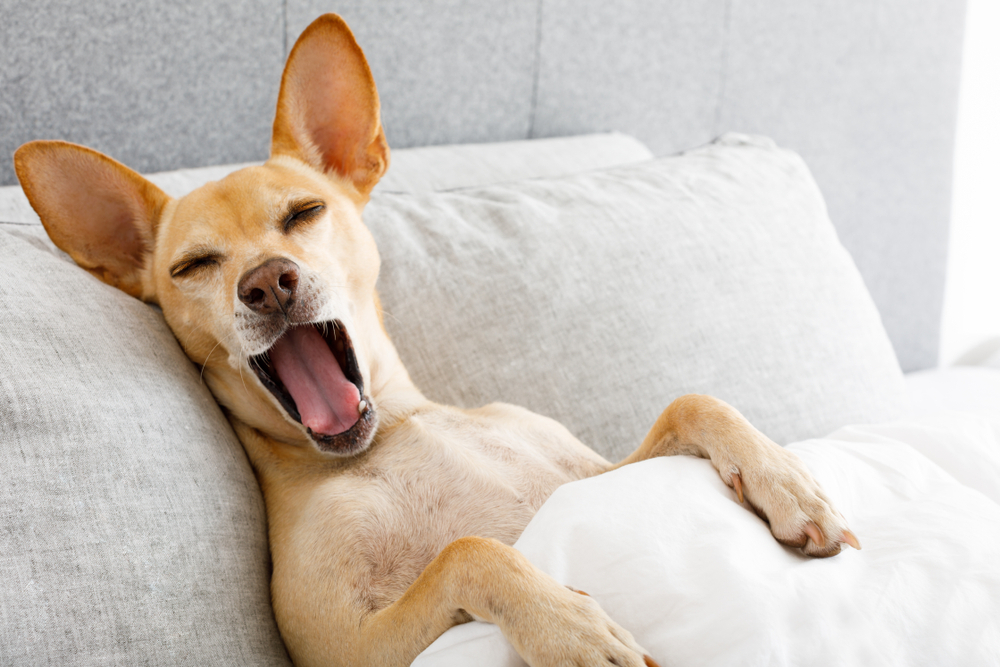
What Do Dogs Dream About?
While dogs can’t describe their dreams verbally, it is thought that they dream in a similar way to us about their experiences. They likely relive parts of their day, replaying events and reacting to them in their dreams as they would in real life. Hunting dogs might dream about chasing prey, and Collies may rerun earlier herding routes, with positive and negative experiences influencing their responses.
Should I Wake My Dog If He Barks in His Sleep?
Although your dog may seem distressed, you should not wake him when he barks in his sleep. Barking and other vocalizations aren’t normally a danger, and you may put your dog and yourself more at risk by trying to rouse them. Dogs can become confused when woken suddenly, potentially causing them to lash out aggressively and hurt you unintentionally.
In most cases, it’s best to let your dog engage in his behaviors in a safe space. If it becomes bothersome, you can try setting his bed in a more isolated area where the noise won’t be as irritating to other family members.
Final Thoughts
By itself, a dog’s habit of barking in his sleep is rarely a cause for concern. He’s likely simply acting out what he’s imagining, drawing on his memories and daily experiences to formulate fantasies that will have him chasing, playing, hunting, and, in many cases, vocalizing. Unless your dog’s sleeping habits or behaviors during his waking hours have changed, this is just one of many unique quirks that make life with pets memorable and fun.
Featured Image Credit: eva_blanco, Shutterstock





